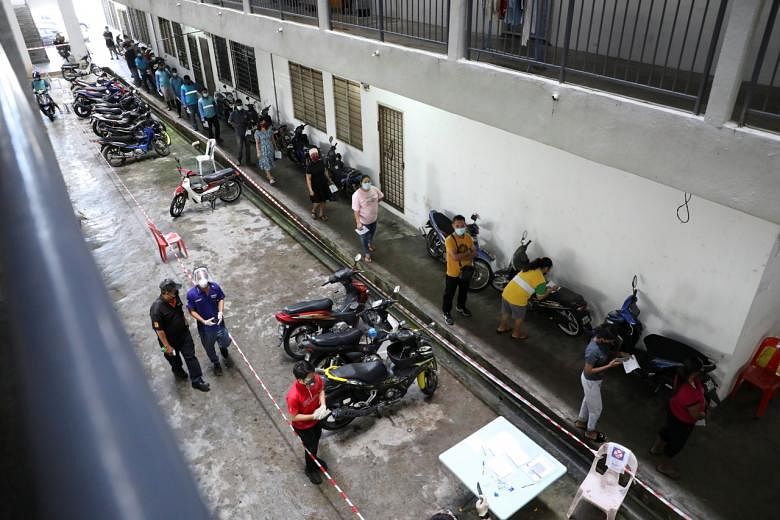KUALA LUMPUR (SIN CHEW DAILY/ASIA NEWS NETWORK) - Two months ago the whole world was staring with awe at the Covid-19 situation in India.
That was a disaster of epic proportions with 300,000 to over 400,000 daily new infections for many days in a row. People were fighting for oxygen tanks. Those who died did not get to be buried properly while those alive were clueless how to stay alive... India was rushed into the ICU!
Over here in Malaysia, while many sympathized with what took place in India, who also felt lucky we were not India, probably wouldn't be.
Two months later, India is today is basically out of danger. The country has managed to keep daily new infections to around 30,000, a sharp 90 per cent drop from the peak barely two months earlier. Given the country's enormous population of 1.3 billion, this number is actually quite good.
However, here in Malaysia, our daily infection numbers have skyrocketed from over 6000 to 8000, 9000 and reached a high of 13000 today.
Klang Hospital, for instance, is no longer able to handle the large number of bodies. Some other hospitals are short of oxygen and several patients may have to share a single ventilator.
At the Covid-19 assessment centres (CACs) in Shah Alam and Klang, thousands of people are lining up for Covid-19 assessment, while Covid-positive children are lying in hospitals waiting for oxygen.
Medical frontliners have revealed through their own experiences that the actual situation could be a lot more worse than the announced figures and media reports.
"We're already in India 2021," a medical personnel said.
On a per capita basis, we have actually overtaken India back then. Of course, we boast better medical infrastructure and social resources compared to India and that probably explains why we still manage to hold on to this day and have somewhat evaded the Indian-style disaster.
But, if we don't control the situation, sooner of later our healthcare system will collapse and what happened in India will happen right here in Malaysia!
Perhaps India is lucky that after the virus reached a peak there, it started to come down and move elsewhere. We may not be that lucky!
The government thought the MCO introduced since May should help mitigate the pandemic, but since MCO 3.0. to FMCO and now the large area EMCO, we have only gotten worse!
There must be reasons for such eventuality, but it seems that neither the federal nor the state governments have failed to see the root of the problem, or are rather unwilling to face it.
Selangor itself has seen more than 6000 cases a day. Health DG Noor Hisham says most of the new clusters are related to factories while MB Amirudin Shari says 80 per cent of the clusters are from factories.
And these factories are still running today!
The government's lockdown policy has only targeted majority of harmless industries, restricting the movements of low-risk people while allowing the most menacing factories to keep on operating and high-risk workers, in particular migrant workers, to continue to assemble.
Some of these factories may not even manufacture essential items but more for exports such as rubber gloves and electronics. While the production of such items could bring in the much needed for foreign exchange earnings and tax revenue, both the government and the people will have to pay a hefty price, including the government's healthcare expenses and assistance packages as well as job and income losses, which far outweigh the foreign exchange earnings and tax revenue from those factories.
The MITI letters will expire very soon, and if the government is serious about doing something positive to fight the virus, it must shut these factories for at least two weeks. This is not about punishing factories and local businesses, but to help them, get all their workers to go for screening tests and vaccination.
Sure enough there are other infection clusters besides the factories, but the priority now should be on factories.
The government will need to act more decisively before our healthcare system collapses and the Indian disaster repeats here.
- Tay Tian Yan is a contributor to the paper. Sin Chew Daily is a member of The Straits Times media partner Asia News Network, an alliance of 23 news media organisations.

